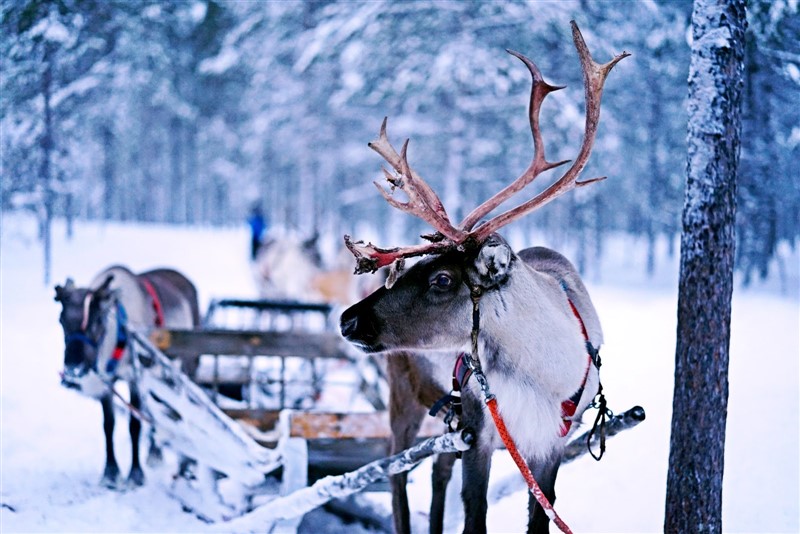This guide will give you all of the information you need on the word padoru, including its definition, usage, origin, and more!
-
Kevin
-
 February 10, 2021
February 10, 2021
-
 Common Questions
Common Questions
 February 10, 2021
February 10, 2021
 Common Questions
Common Questions
This guide will give you all of the information you need on the word padoru, including its definition, usage, origin, and more!
WordHippo states that the word padoru (パドル) is of Japanese origin, and means paddle. This is an onomatopoeic word that refers to the paddling sound that a paddle makes splashing in the water.
Know Your Meme states that the word doubled, “padoru padoru,” is a Japanese onomatopoeia that refers to the clip-clopping noise a reindeer’s hoof makes when it is trotting about. The word has been “meme-ified” and in American English, is commonly used by “weeaboos” or “weebs,” fans of Japanese anime and manga, as an exclamation around the holidays, according to Urban Dictionary.
The meme of the word padoru comes from the Japanese PlayStation Portable RPG (role-playing game) Fate/Extra. According to Fandom, the game was created by Type-Moon and Image Epoch, published by Marvelous Entertainment. Released in Japan in 2010 and worldwide in 2011, the game was released as part of Marvelous’ TYPE-MOONxRPG PROJECT. The game also has a manga adaptation illustrated by Robi~na and published by Kadokawa Shoten released from late 2011 to early 2014.
In the game, Nero Claudius sings a parody of the Japanese version of “Jingle Bells,” a popular Christmas song. Nero is one of three servants in the game. The character ends the song loudly yelling “Padoru padoru!” The lyrics to the song are below, written in Romaji. Romaji is when Japanese characters are spelled phonetically in Roman characters, according to Mondly.
Hashire sori yo
Kaze no you ni
Tsukimihara wo
Padoru padoru
In late 2011, a YouTube user ugroundz1 uploaded the sequence to the platform. Since its posting in December 2011, the video has garnered over 1.7 million views, with over 48,000 likes. From here, the meme spread, with others uploading the scene looped for an hour, like YouTube user Yung Bubby, or creating their own memes on social media sites like Twitter, Facebook, Reddit, and more.

According to Literary Devices, onomatopoeia is a word that imitates the sound of something. The sound of the word itself mimics the sound of whatever it is describing, which makes the description expressive and more interesting.
Many onomatopoeic words have come to develop meanings of their own, like the word “whisper.” It is onomatopoeic in that it refers to wispy breathy sound of someone speaking quietly, but also is now used to describe the action itself of speaking softly.
Animal sounds are considered onomatopoeia, along with other natural or mechanic sounds, like the revving of an engine, the rustling of leaves on a tree, or the whooshing wind against one’s face.
Onomatopoeia is used frequently in literature and poetry to give rhythm to text, make descriptions more tangible and poetic, and to appeal to a reader’s senses, making it feel as though they are actually there. Famous authors and poets Alfred Lord Tennyson, William Shakespeare, Ernest Hemingway, and many others use onomatopoeia in their writing.
Onomatopoeia is similar to phanopoeia, in which one uses a word to describe the sense of something rather than it’s natural sounds. Oxford Dictionary defines phanopoeia as using words in poetry to suggest visual images. This is less on the nose that onomatopoeic sounds like crash, bang, or zoom. If someone was writing about a bee, they may use a lot of words that have a buzzing sound in them to suggest the feeling of a bee using phanopoeia.
Padoru may be used frequently by fans of Fate/Extra, particularly around the holidays. Self-proclaimed “weeaboos,” or fans of anime and manga, may use the phrase as a Christmas greeting similar to “Ho ho ho!”
Tyler and Anthony love watching anime together. Tyler knocks on Anthony’s door to deliver his Christmas present. Anthony opens the door.
Tyler: Padoru padoru!
Anthony laughs.
Anthony: Merry Christmas!
Tyler: You too. I brought your present over!
Anthony: Thank you!
Here, Tyler uses padoru as an inside joke and silly holiday greeting with his friend. Next, Holly and Janie are attending a Christmas fair in their town. They decide to take a sleigh ride.
Holly: I live sleigh rides, they feel so magical when it’s snowing like this
Janie: I know! And I love the sounds of the reindeer feet on the pavement. Padoru padoru!
Holly: I know what you mean! I love that clip-clop sound.
Here, Janie is using the onomatopoeic version of the word to describe the sound of the reindeer hooves.
In English, the word padoru directly translates to “paddle.” Below are a list of synonyms for the word paddle from Thesaurus.
Since it is an onomatopoeic word, synonyms for the word padoru include any English onomatopoeic word for the sound a horse or reindeer’s hooves might make. A list of these words is below, from Merriam-Webster Thesaurus.
If the word is being used in the colloquial slang sense as a meaningless holiday greeting, any of the below may be considered synonyms:
Overall, the word padoru is a Japanese word that directly translates to the word paddle. Since its popularization from the videogame Fate/Extra, the word has come to stand for the sounds of reindeer hooves clip-clopping, and is used by fans of anime and manga as a silly holiday greeting.